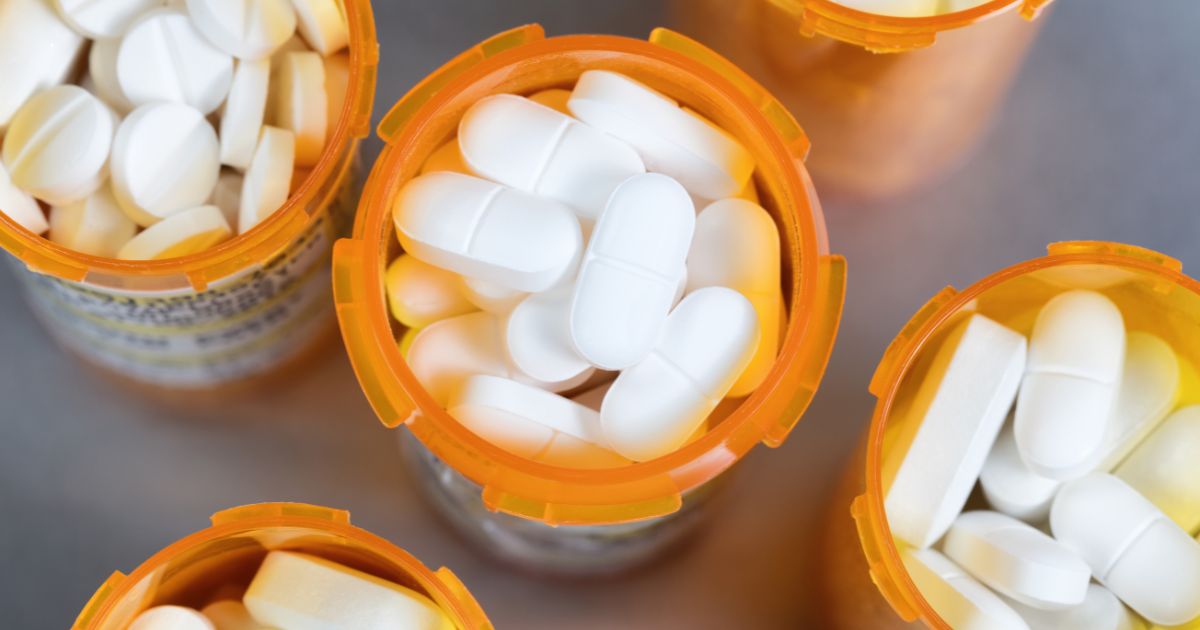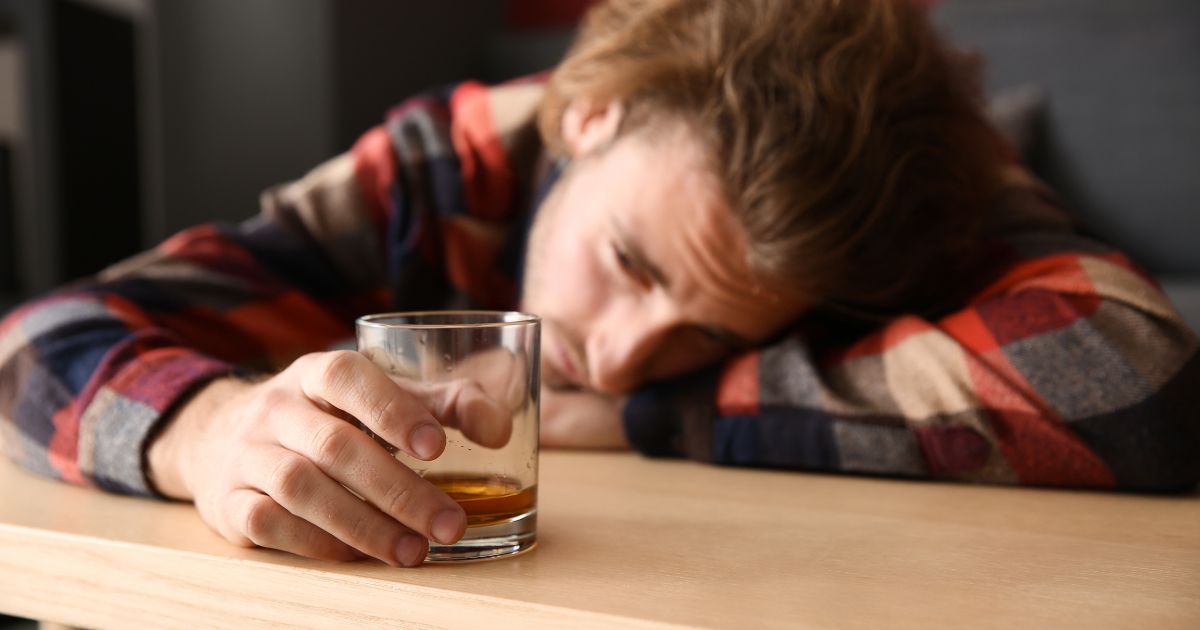When you’re on prescription medication, you need to be careful of interactions – that is, when a substance interacts with another substance, which can lead to various issues. Antidepressants and alcohol are one such example. Drinking counteracts the benefits of antidepressants, making your symptoms harder to treat. It can also increase their side effects.
Hemingway famously said, “I drink to make other people more interesting,” but mixing antidepressants and alcohol may not be the kind of interesting you’re looking for. We’ll explain the dangers in this article.
Understanding Antidepressants
Antidepressants are a class of drugs meant to treat depression, as well as other mood disorders, by adjusting the balance of neurotransmitters in the brain.
These medications are based on the idea that depression is due to a “chemical imbalance” – that the brain is not producing sufficient levels of neurotransmitters like:
- Serotonin – Helps regulate mood, sleep, appetite, and overall feelings of well-being
- Dopamine – Plays a role in the body’s “fight or flight” response, affecting attention, arousal, and stress management.
- Norepinephrine – Involved in reward, motivation, and pleasure, as well as controlling movement and emotional responses.
Antidepressants help restore a balance in these neurotransmitters, improving mood and emotional stability. However, if alcohol is consumed while on these, it can counteract these effects and lead to side effects. Antidepressants and alcohol don’t mix.
How Do Antidepressants Work?
They work by altering the levels of neurotransmitters in the brain, leading to a (hopefully) improved balance of emotions. They generally do this by either stimulating the release of more neurotransmitters or prohibiting the “reuptake” of these chemicals (the brain withdraws chemicals back into the synapses to maintain balance). Ideally, this leads to improved mood, less anxiety, and reduced depression.
Get confidential help from our addiction treatment specialists in Orange County. Call to join our rehab program today!
Call 866-881-1184Kinds of Antidepressants
There are different kinds of antidepressants, and they work in different ways.
Here are some of the most common:
SSRIs (Selective Serotonin Reuptake Inhibitors)
SSRIs are the most commonly prescribed class of antidepressants, designed to increase serotonin levels by blocking its reuptake into neurons, which enhances mood regulation.
Some well-known SSRIs include:
Zoloft (Sertraline)
Zoloft is widely prescribed for conditions such as depression, anxiety disorders, PTSD, and OCD. It’s known for having fewer sedative effects compared to other SSRIs but can still cause side effects like nausea, insomnia, and sexual dysfunction.
Zoloft and alcohol, however, are a risky combination. Alcohol can enhance Zoloft’s side effects, such as dizziness and drowsiness, and may impair judgment and coordination. This mix can also exacerbate depression and anxiety, which contradicts the intended effect of the medication.
Lexapro (Escitalopram)
Lexapro is commonly used to treat major depressive disorder (MDD) and generalized anxiety disorder (GAD). It’s often favored for its relatively mild side-effect profile, with fewer cases of sexual dysfunction and weight gain compared to other SSRIs.
However, Lexapro and alcohol can be a problematic combination. Like Zoloft, alcohol can intensify side effects such as drowsiness, dizziness, and difficulty concentrating. Lexapro’s effectiveness in stabilizing mood can also be undermined by alcohol’s depressive effects, potentially making the medication less effective and worsening the very symptoms it is prescribed to treat.
Prozac (Fluoxetine)
One of the first SSRIs, Prozac, has been prescribed for depression, panic disorder, and bulimia since the late 1980s. It is also available in weekly dosages due to its long-lasting effects. However, Prozac and alcohol don’t mix well either, as alcohol can heighten side effects such as drowsiness and, in some cases, worsen mood swings and anxiety.
SNRIs (Serotonin-Norepinephrine Reuptake Inhibitors)
SNRIs work by inhibiting the reuptake of both serotonin and norepinephrine, which can be beneficial for patients who do not respond to SSRIs. They can also help with chronic pain conditions.
Examples of SNRIs include Cymbalta (duloxetine) and Effexor (venlafaxine). Cymbalta is often prescribed for major depression, generalized anxiety, and chronic pain disorders such as fibromyalgia or diabetic neuropathy. Its dual action on serotonin and norepinephrine helps with mood improvement and pain relief. Common side effects include nausea, dry mouth, and dizziness.
Effexor, meanwhile, is commonly used for depression, as well as panic attacks, and social anxiety disorder. At lower doses, it works primarily on serotonin, but at higher doses, it also affects norepinephrine. Effexor can sometimes raise blood pressure, especially at higher doses, and may cause withdrawal symptoms if stopped abruptly.
Atypical Antidepressants
Atypical antidepressants are those that work in unique ways that separate them from more traditional antidepressants.
One example of an atypical antidepressant is Wellbutrin (bupropion). Wellbutrin is known for its unique mechanism of action, targeting dopamine and norepinephrine, making it different from traditional SSRIs.
While it’s often used for depression, seasonal affective disorder, and even as a smoking cessation aid, mixing Wellbutrin and alcohol can lead to serious complications. Alcohol can increase the risk of seizures, particularly in individuals with a history of alcohol abuse or those taking higher doses of Wellbutrin. The combination can also exacerbate side effects like dizziness and anxiety, undermining the effectiveness of the antidepressant. The unpredictable interactions between alcohol and Wellbutrin illustrate the broader risks associated with mixing alcohol and antidepressants.
Looking for quality substance abuse treatment that’s also affordable? South Coast accepts most major insurance providers. Get a free insurance benefits check now.
Check Your CoverageHow Alcohol Affects the Brain
The important thing to understand about alcohol is it is a depressant. It decreases central nervous system activity, leading to feelings of relaxation and sedation.
Somewhat paradoxically, in low doses, alcohol actually functions more like a stimulant. For example, a few drinks temporarily increase levels of dopamine, serotonin, and norepinephrine. This can lead to feelings of euphoria, energy, and alertness – the “buzz” people refer to when they drink.
Chronic alcohol use messes up the balance of these chemicals, potentially exacerbating symptoms of depression, anxiety, fatigue, and sedation. This is particularly concerning for individuals on antidepressants, as alcohol can interfere with their effectiveness.
The interplay between antidepressants and alcohol can lead to mood instability, decreased effectiveness of the medication, and a higher risk of side effects like drowsiness and dizziness.
Long-Term Impact of Drinking on Mental Health
Long-term alcohol consumption will take a major toll on your mental health, leading to a myriad of psychological issues that can persist even after you quit. One of the most concerning impacts is the development of alcohol use disorder (AUD), which can create a vicious cycle of dependency and worsening mental health.
As individuals drink more frequently, the brain’s structure changes for the worse. This can affect areas responsible for mood regulation, memory, and cognitive function. Studies have shown that long-term drinking is associated with a reduction in brain volume, particularly in regions like the prefrontal cortex, which is crucial for decision-making and emotional regulation. Such changes can lead to increased impulsivity, irritability, and difficulty managing emotions, ultimately contributing to mood disorders.
Moreover, mixing antidepressants and alcohol will undermine the effectiveness of your anti-depression treatment. While it may be tempting to reach for a bottle when you’re feeling down, in the long run, it means more side effects, less stable mood, and less effective treatment.
The Dangers of Drinking Alcohol on Antidepressants
Because alcohol is a depressant, antidepressants and alcohol work at cross-purposes with each other. Taking them together can bring a range of adverse effects.
Here’s a closer look at what can happen when someone combines alcohol with antidepressants:
- Increased Side Effects: Both alcohol and antidepressants can have sedative effects. When taken together, they can amplify these side effects, leading to heightened drowsiness, dizziness, and impaired coordination. This can increase the risk of accidents, falls, and injuries, particularly in older adults. It also makes driving extremely dangerous.
- Reduced Effectiveness of Antidepressants: Alcohol can interfere with the metabolism and absorption of antidepressants, potentially diminishing their effectiveness. This can lead to a resurgence of depressive symptoms, anxiety, or other mental health issues that the medication is intended to treat. For example, alcohol may counteract the mood-stabilizing effects of medications like SSRIs (Selective Serotonin Reuptake Inhibitors).
- Serotonin Syndrome: Some antidepressants, particularly those that affect serotonin levels, can increase the risk of serotonin syndrome when combined with alcohol. This potentially life-threatening condition is characterized by symptoms such as confusion, rapid heart rate, and high blood pressure. The combination can lead to dangerous serotonin levels in the brain, causing severe side effects.
- Seizures: Taking antidepressants and alcohol can heighten the risk of seizures. This is particularly true of Wellbutrin. Seizures are themselves a well-known symptom of alcohol withdrawal, making this combination particularly dangerous.
- Mood Instability: Alcohol is a known depressant that can worsen symptoms of depression and anxiety. For individuals taking antidepressants, drinking can lead to mood swings, increased irritability, and emotional instability, which can hinder progress in treatment.
- Withdrawal Complications: For those who are dependent on alcohol, withdrawal can be particularly complicated when mixing antidepressants and alcohol. Symptoms of withdrawal can exacerbate mental health issues, leading to a difficult and potentially dangerous situation.
Needless to say, mixing antidepressants and alcohol is an exceedingly bad idea. If you are currently struggling with this, professional treatment may be necessary.
Alcohol and Depression Treatment Programs
If you find yourself mixing antidepressants and alcohol, it’s time to seriously consider professional treatment.
The first step will be coming in for a comprehensive medical assessment. Here, a doctor will examine you for any dual diagnosis issues like depression. The presence of depression alongside alcohol addiction demands treating both conditions at once. This means you’ll require medication management to ensure you’re not mixing your antidepressants and alcohol.
After your entire medical history is assessed, you’ll enter medical detox. During this time, you’ll receive 24/7 care and attention as your body flushes alcohol from its system. Once you’ve completely detoxed, you’ll progress to our alcohol rehab program. This takes place along a spectrum of care, with residential treatment being the most intensive, all the way to outpatient treatment and aftercare.
How long alcohol rehab takes as a whole depends on the severity of your condition – it can be anywhere from around four months to in excess of six or more. If you have any questions, you can call us at 866-881-1184 or contact us here. Our treatment professionals are available 24/7, and all inquiries are confidential.









